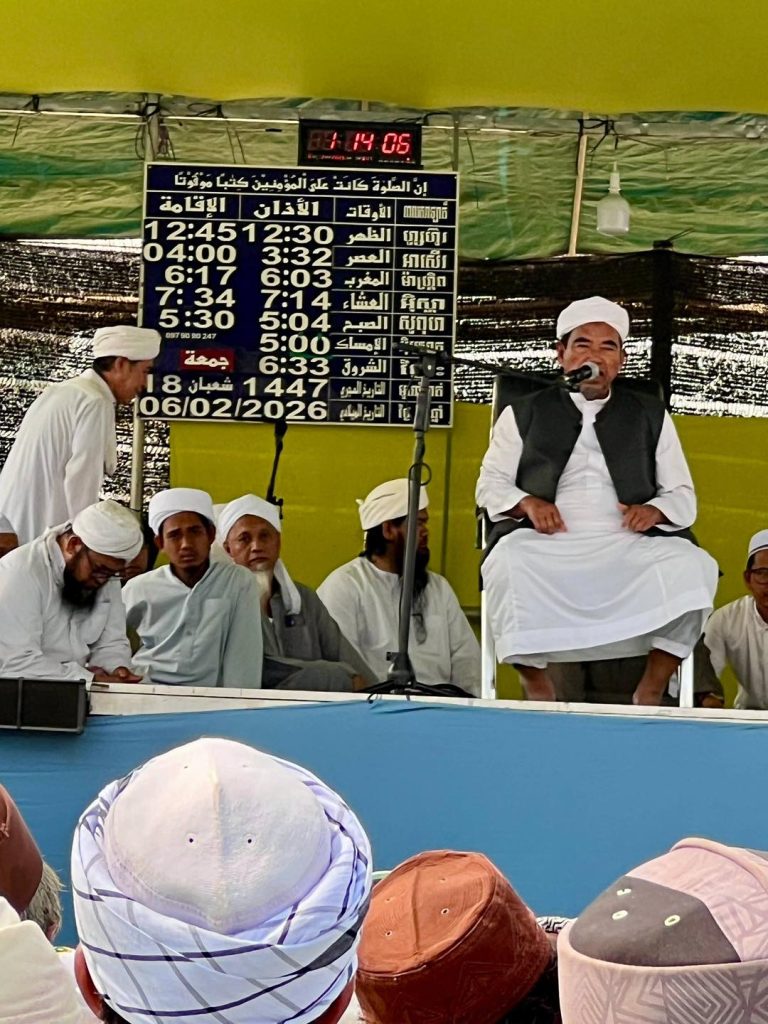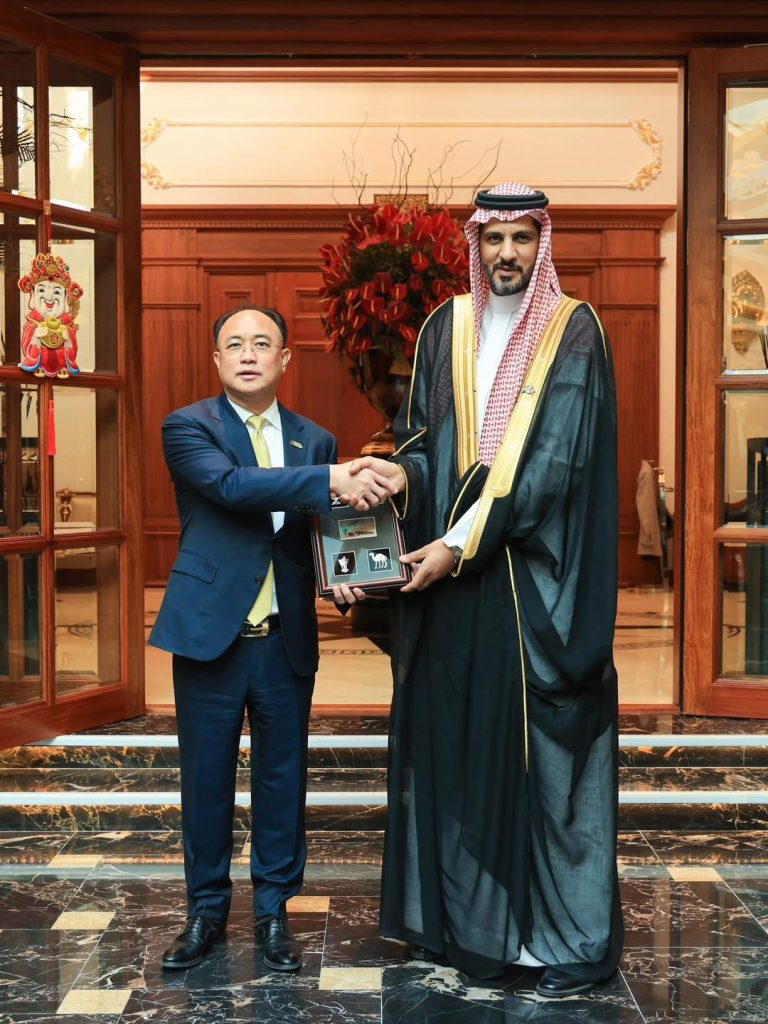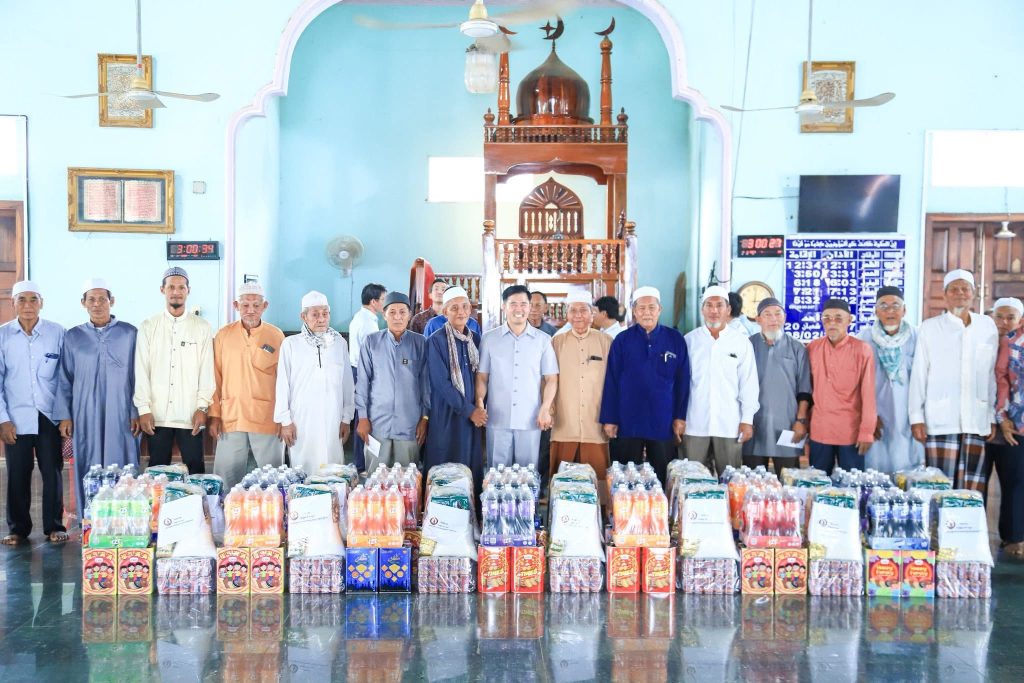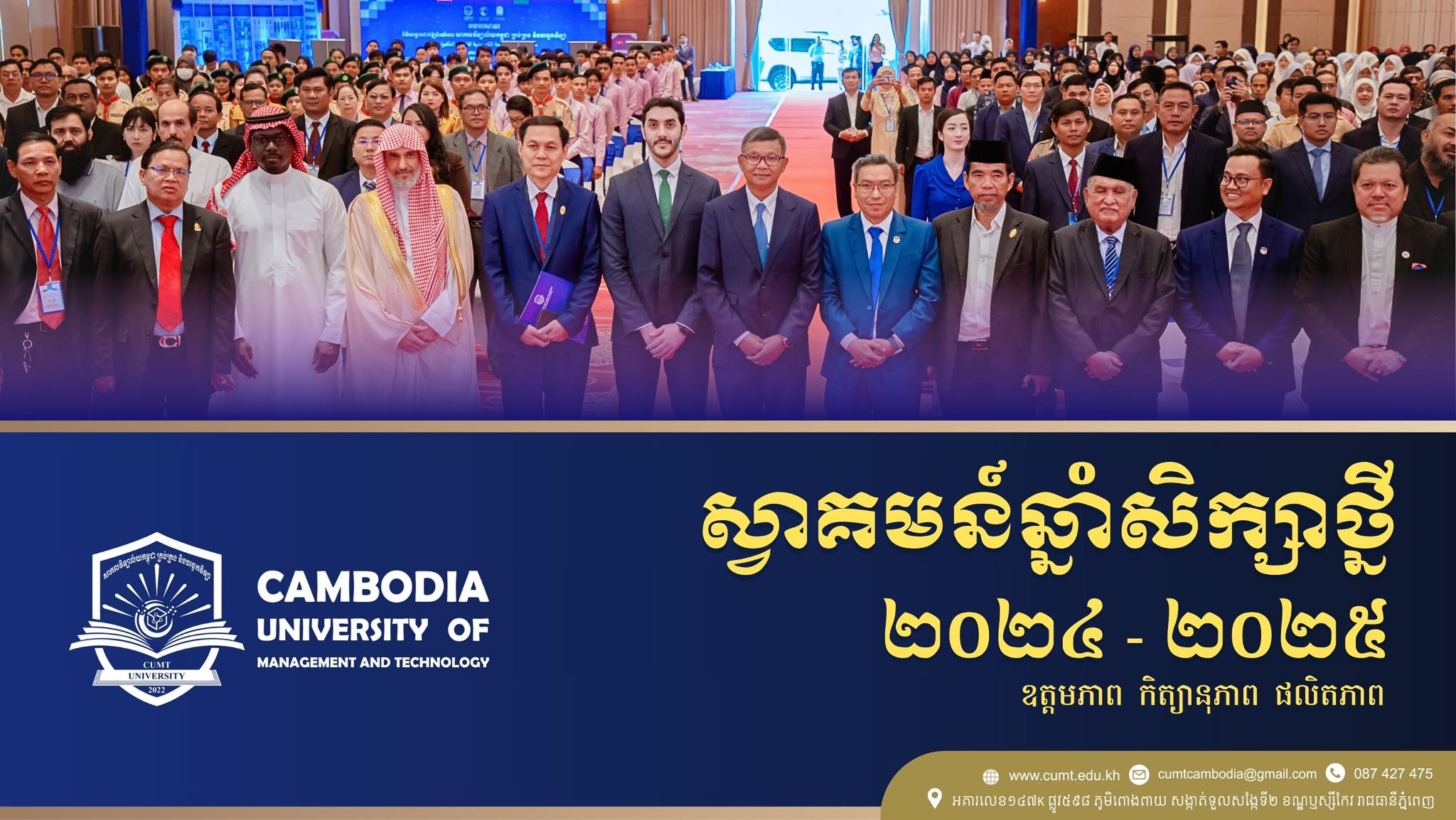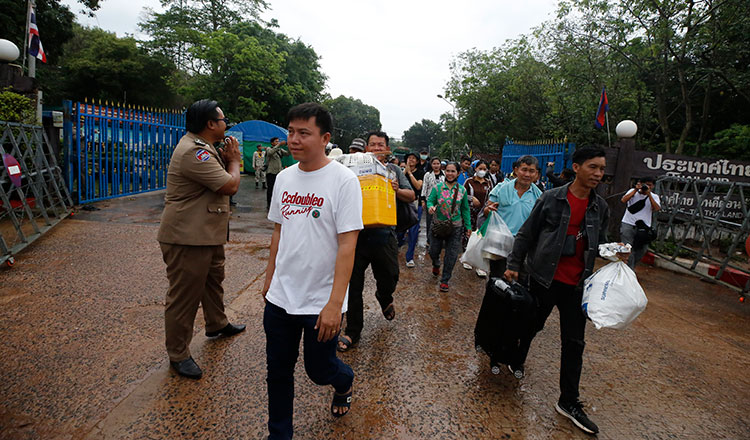
Migrant workers returning from Thailand glad to have opportunities to work in Cambodia


The recent surge in returning Cambodian migrant workers is partly driven by escalating tensions along the Cambodia–Thailand border, specifically surrounding the Ta Moan Thom, Ta Moan Tauch, and Ta Krabei temples and the Mom Bei area. These disputed sites have long been a source of friction between the two countries.
A recent deadly skirmish, along with Thailand’s partial closure and limited reopening of border checkpoints—and its threat to cut electricity exports—has created widespread fear and uncertainty among migrant communities.
Although Thai Prime Minister Paetongtarn Shinawatra has already assured that her government has no intention of deporting Cambodian workers during this tense period, many migrants are still choosing to return to Cambodia for a range of personal and practical reasons, including concerns over job security and safety.
In response, the Cambodian government has actively worked to create job opportunities at home, aiming to ensure returning workers can find stable employment within the country.
These efforts are intended not only to address immediate labour needs but also to reduce long-term dependence on foreign labour markets.
For many, the promise marks more than just economic progress; it offers the emotional comfort of being present for their children’s milestones, sharing meals with loved ones, and rebuilding family bonds strained by years of separation.
A Khmer Times team stationed at the O’Smach International Checkpoint in Cambodia’s Oddar Meanchey province reported firsthand the steady flow of migrant workers returning to the country through this busy border crossing.
For thousands of migrant workers like Yeat Sophea, the government’s promise of more job opportunities at home has sparked a renewed sense of hope and joy.
Sophea, who spent six years working as a construction labourer in Thailand, shared how he was encouraged by relatives to seek work abroad.
“The job itself wasn’t too difficult,” he explained, “but being so far away from home was the hardest part. Life as a migrant worker in a foreign country is never easy.”
For many, the issue goes beyond just finding work—it’s about the chance to return to their families, to tuck their children into bed each night rather than relying on distant video calls from cramped dormitories.
When asked how often he visits his family, Sophea’s face grew sombre as he admitted he only manages to see them once every two or three years.
“Even though I’m from the border province of Oddar Meanchey, travelling all the way from Thailand to visit my family costs a lot,” he said. “I simply can’t afford it—the salary I make barely covers my family’s basic needs and my own expenses.”
For Sophea and many others, the government’s commitment to creating jobs at home offers a much-needed chance to rebuild their lives close to those they love.
Another returning migrant worker, who preferred to remain anonymous, opened up about the challenges he faced while working in Thailand and his hopes for a better future in Cambodia.
“I spent two years working there, but the conditions were tough — long hours, low pay, and limited support,” he explained. “It wasn’t just the hard work; being far away from my family made everything harder.”
Now that he has returned home, he said he has no intention of going back to Thailand for employment. Instead, he is determined to find a job within Cambodia, either in Phnom Penh or another province, where he can rebuild his life closer to his loved ones and enjoy greater stability and peace of mind.
He added, “Being home means I can be there for my family, and that matters more than anything else.” His words reflect how the promise of jobs at home isn’t just about economic relief—it’s a chance to rebuild lives rooted in family and community.
As Cambodia looks inward to create opportunities for its people, it is, for many, a step toward healing long-standing wounds of separation.
The Cambodian government has taken proactive steps to create a wide range of job opportunities across various sectors within the country, with Prime Minister Hun Manet announcing that the Cambodian government is fully prepared to respond to a potential mass return of Cambodian migrant workers from Thailand, should such a situation arise due to any unforeseen circumstances.
“In the case of a large-scale return of our Cambodian migrant workers from Thailand, due to any reason, the Royal Government has already prepared all necessary measures to address and manage the situation,” he wrote.
The Ministry of Labour and Vocational Training’s spokesman, Sun Mesa, said that there are tens of thousands of job opportunities waiting for Cambodian citizens, especially workers from Thailand. As of Saturday, Cambodia has approximately 230,000 job opportunities nationwide, according to an announcement by the ministry.
Among them Kampong Speu has over 58,000 jobs. Svay Rieng offers more than 26,000, and Phnom Penh has around 17,000 jobs. Takeo has 14,000 positions, Kampong Cham about 12,000, Kratie over 6,000, and Koh Kong around 7,700. Kandal has more than 8,500 jobs, while Kampong Chhnang has around 1,900 openings.
No figures were provided about job opportunities elsewhere.
According to the ministry of there are currently over 1.2 million Cambodian migrant workers living and working in Thailand.


